Complete Solutions to Worked Out Examples of chapter ELECTRIC CURRENT IN CONDUCTORS of Class 12 book with complete answers and questions
| Class 12 | PHYSICS |
| Chapter | ELECTRIC CURRENT IN CONDUCTORS |
| HC VERMA | Worked Out Examples |
| Number Of Questions | 32 |
| Academic Year | 2023-24 |
An electorn moves in a circle of radius 10cm with a constant speed of `4.0xx10^(6)ms^(-1)`.Find the electric current at a point on the circle.
View SolutionA current 4.0 A exist in a wire of cross-sectional area `2.0 mm^(2)`. If each cubic metre of the wire contains `12.0xx10^(28)` free electrons, then the drift spped is
View SolutionFind the resistance of a copper coil of total wire-length 10m and area of cross section 1.0mm^(2). What would be the resistance of a similar coil of aluminium? The resistivity of copper `=1.7xx10^(-8)(Omega)m` and that of aluminium`2.6xx10^(-8)(Omega).`
View SolutionA parallel-plate capacitor has plates of area `10cm^(2)` separated by a distance of 1mm. It is filled with the dielectric mica and connected to a battery of emf 6 volts. Find the leakage current through the capacitor. Resistivity of mica`=1xx10^(13)(Omega)m`.
View SolutionFind the resistance of a hollow cylindrical conductor of length 1.0m and inner and outer radii 1.0mm and 2.0mm respectively. The resistivity of the material is `2.0xx10^(-8)(Omega)m`.
View SolutionA battery of emf 2V and internal resistance `0.5(Omega)`is connected across a resistance in 1 second?
View SolutionA battery of emf 2.0 volts and internal resistance `0.10(Omega)`is being charged with a current of 5.0A. What is the potential difference between the terminals of the battery?
View SolutionShown n batteries connected to form a circuit. The resistances denote the internal resistances of the batteries which are related to the emf's as `r_(i)=k(epsilon)_(i)`where K is a constant. The solid dots represent the terminals of the batteries. Find (a)the current through the circuit and (b) the potential difference between the terminals of the ith battery.

View SolutionA copper rod of length 20cm and cross-sectional area `2mm^(2)`is joined with a similar aluminium rod as shown in figure .Find the resistance of the combination between the ends, Resistivity of copper `=1.7xx10^(-8)(Omega)m`and that of aluminium`=2.6xx10^(-8)(Omega)m`.

View SolutionA wire of resistance `10(Omega)`is bent to form a complete circle.Find its resistance between two diametrically opposite points.
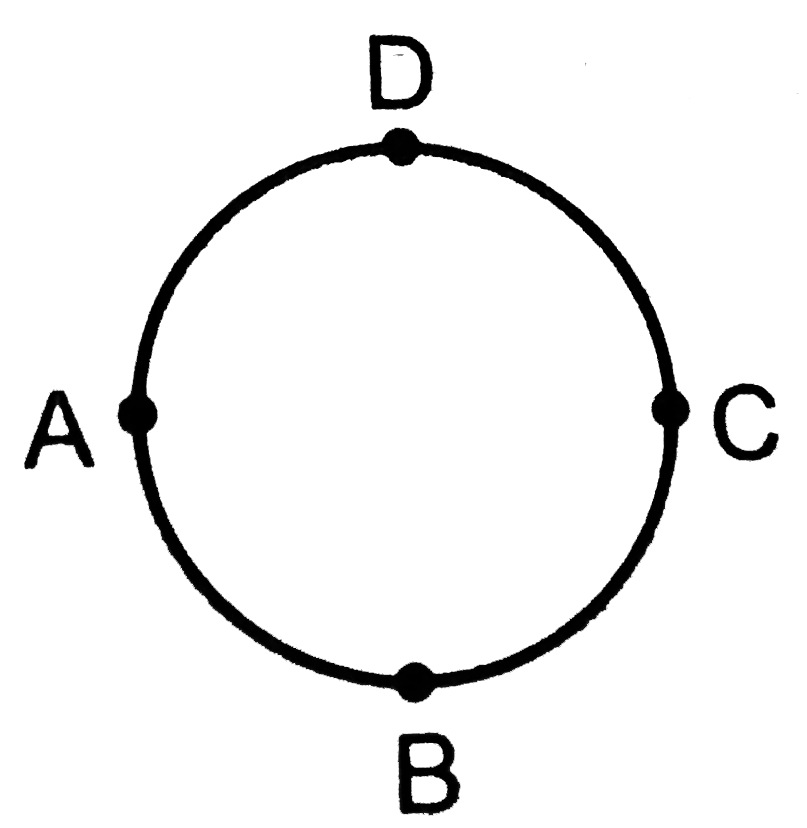
View Solutionfind the currents in the different resistor shown in figure.
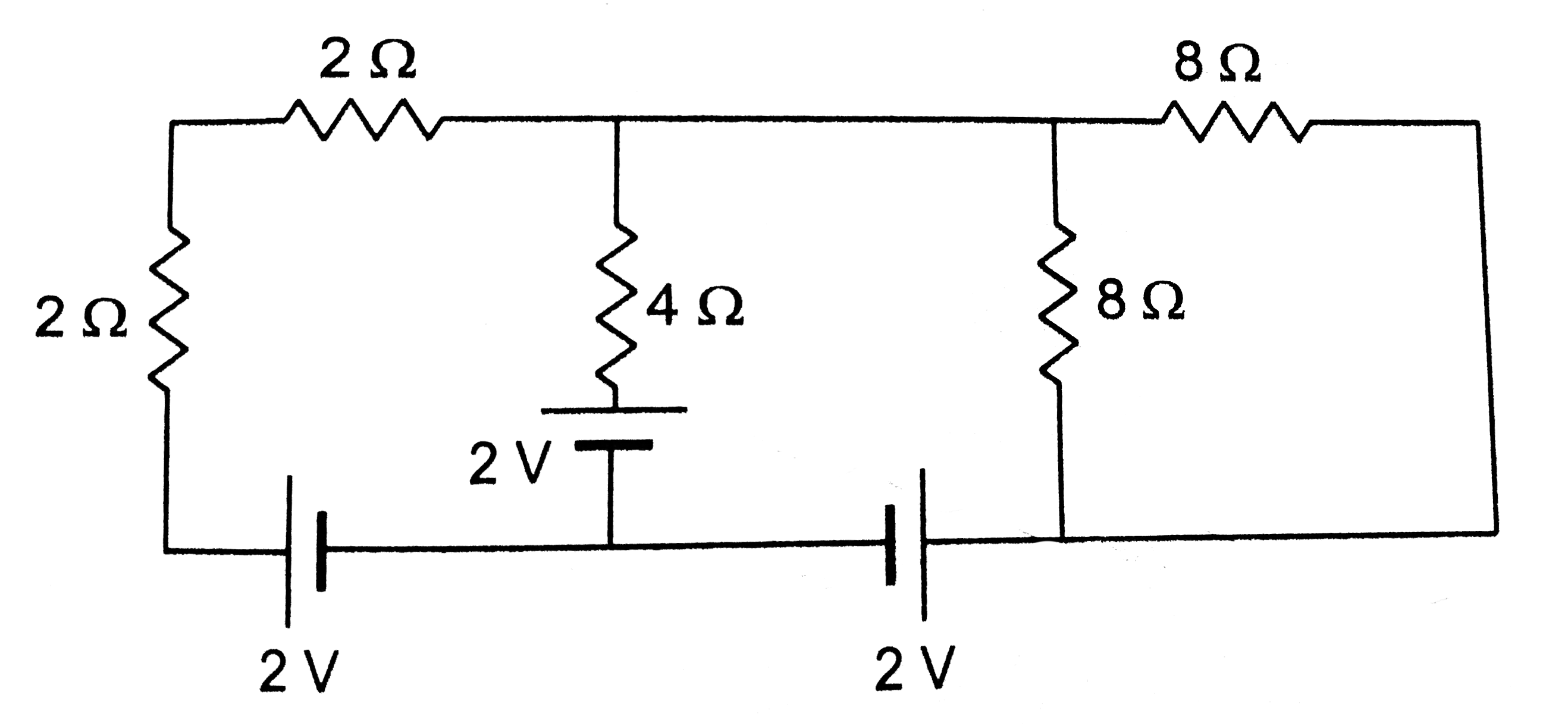
View SolutionFind the current supplied by the battery in the circuit shown in figure.

View SolutionFind the equivalent resistance between the point a and b of the network shown in figure.
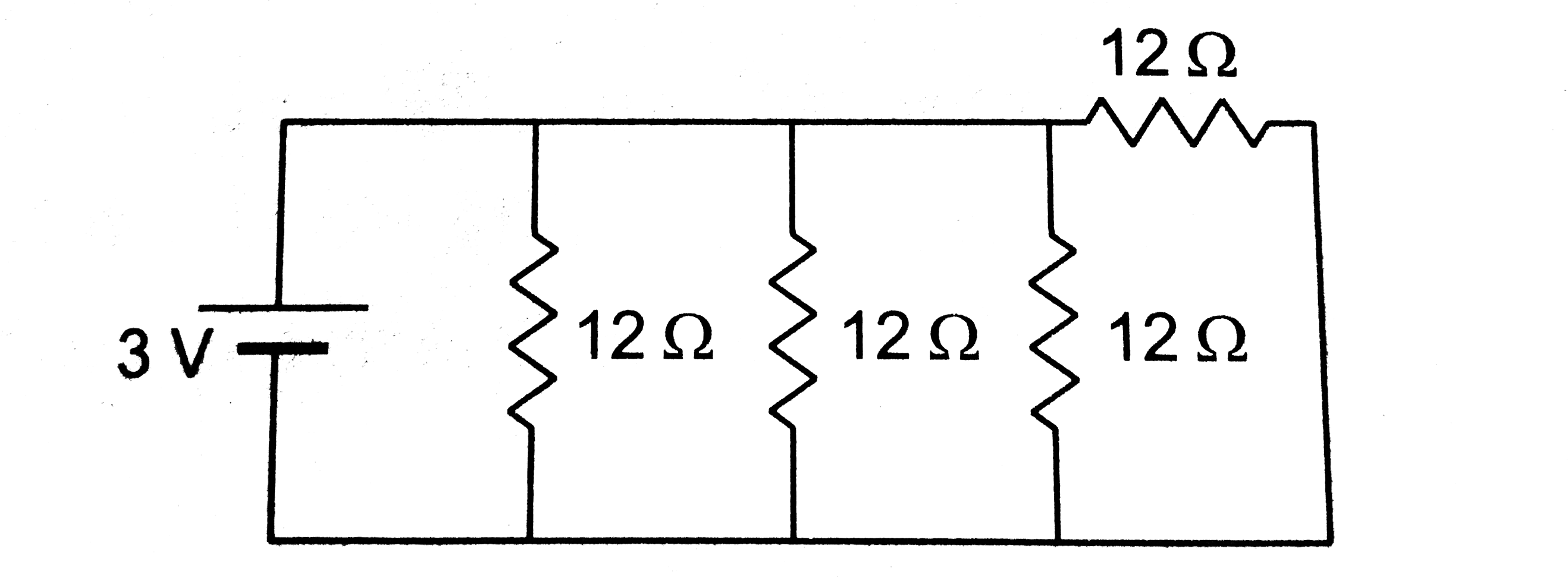
View SolutionFind the effective resistance between the points A and B in figure.
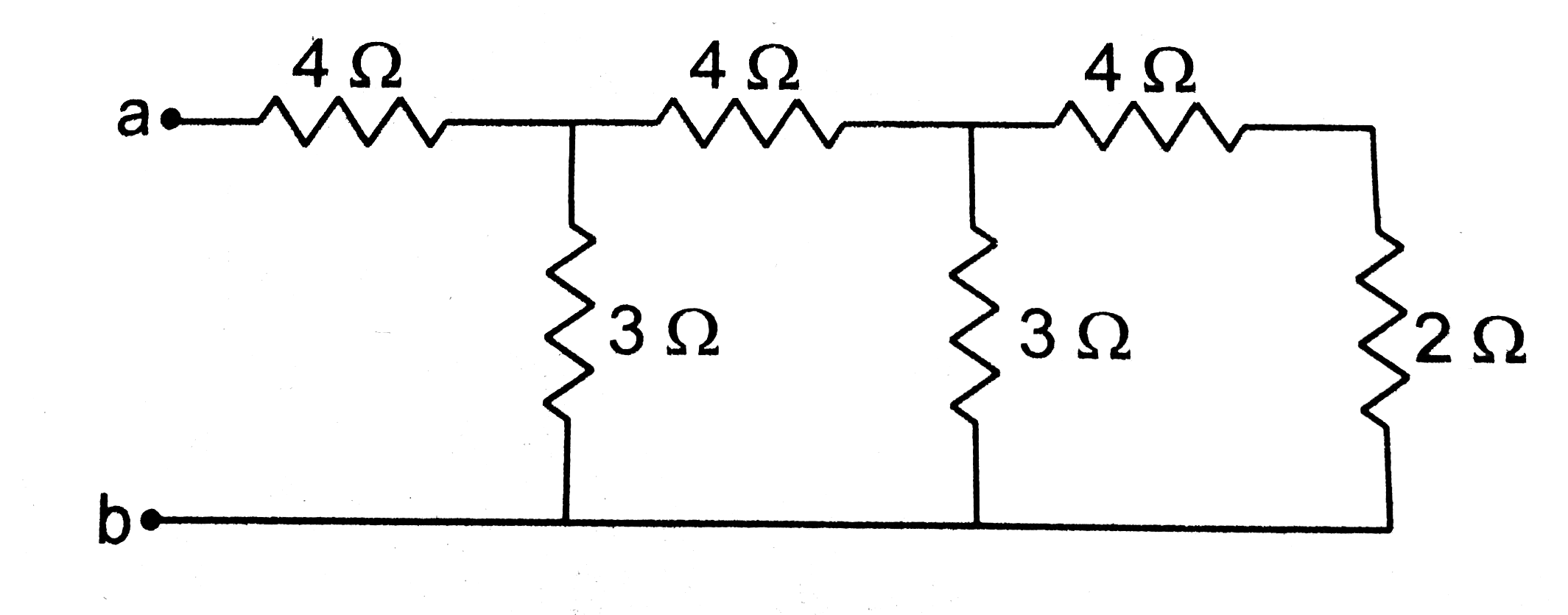
View SolutionFind the equivalent resistance of the network shown in figure between the points a and b when (a) the switch S is open and (b) the switch S is closed .
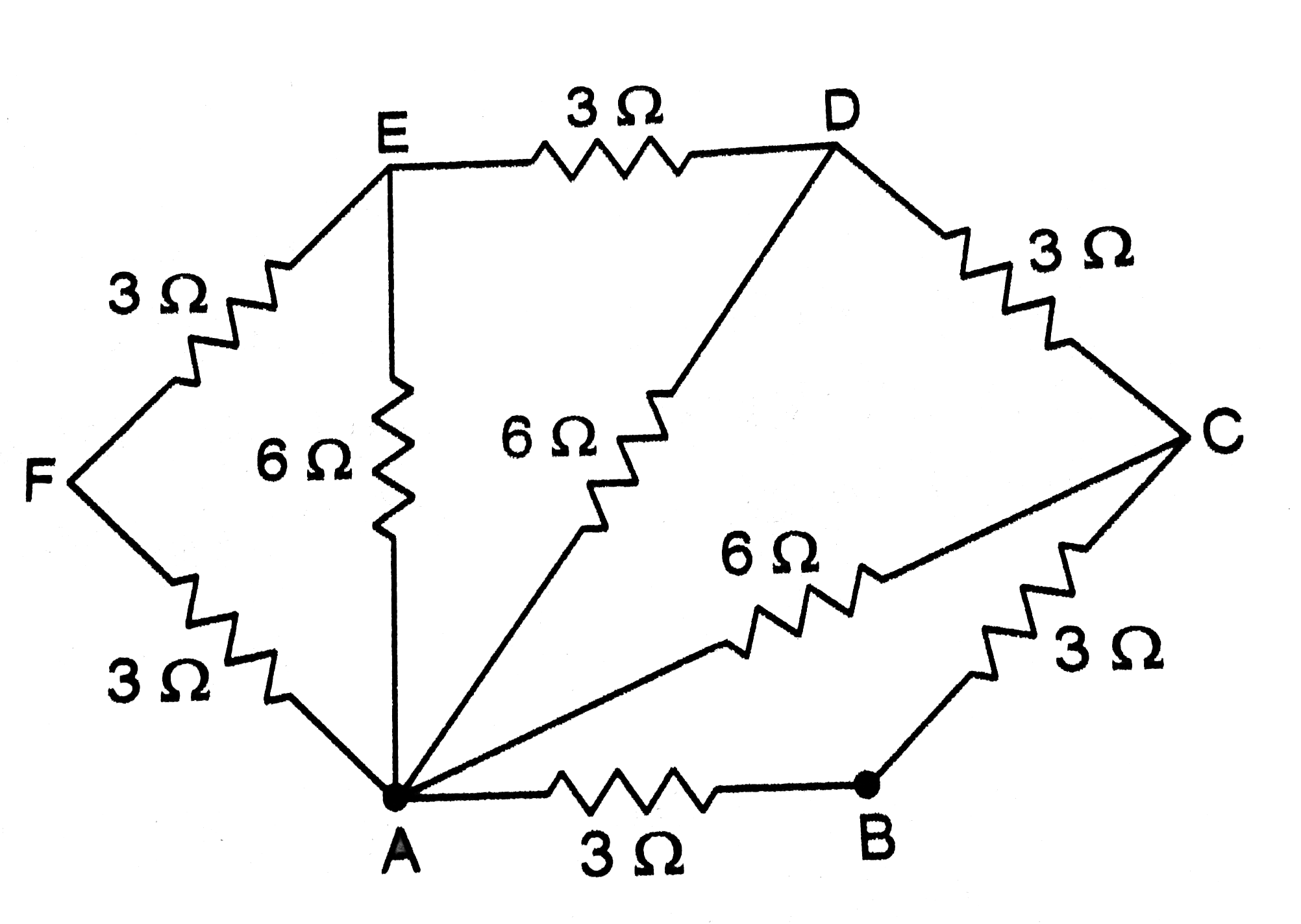
View SolutionEach resistor shown in figure has a resistance of `10(Omega)`and the battery has an emf of 6 V.Find the current supplied by the battery .

View SolutionFind the equivalent resistances of the nerwork shown in figure between the points A and B.
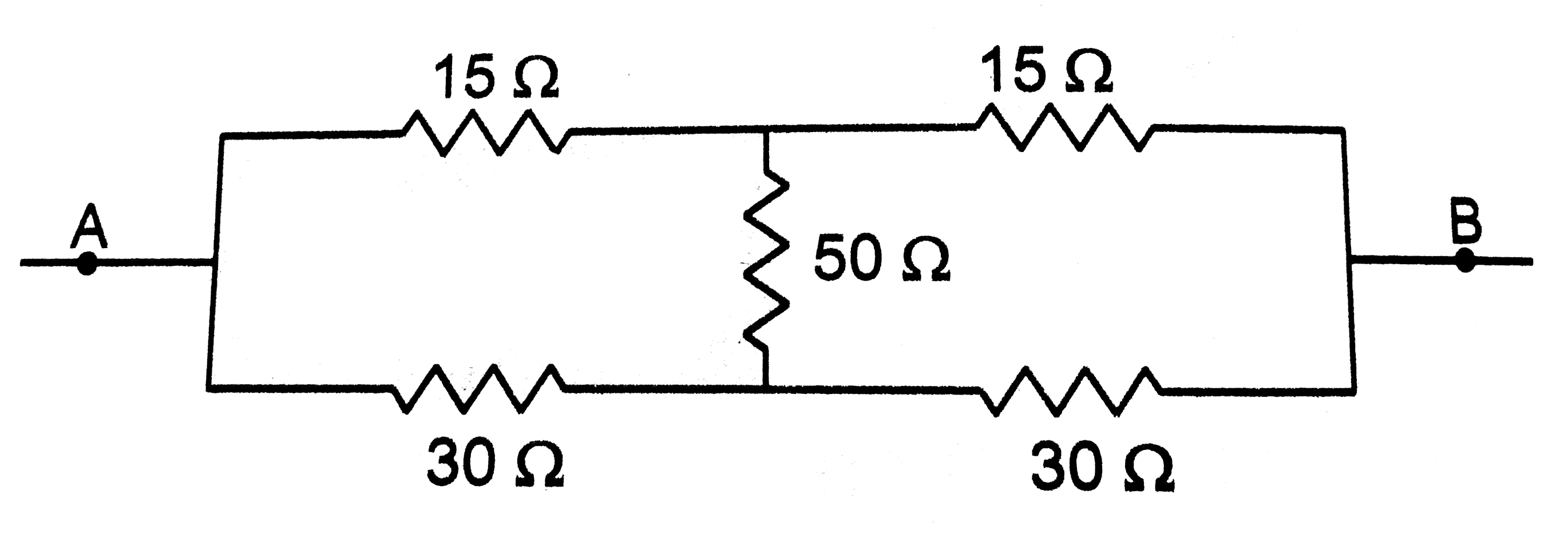
View SolutionIn the circuit shown in figure E,F, G and H are cell of emf 2,1,3, and `1 V` respectively. The resistances 2,1,3 and 1(Omega)are their respective internal resistance .Calculate (a)the potential difference between B and D and (b) the potential differences across the terminals of each of each of the cells G and H.
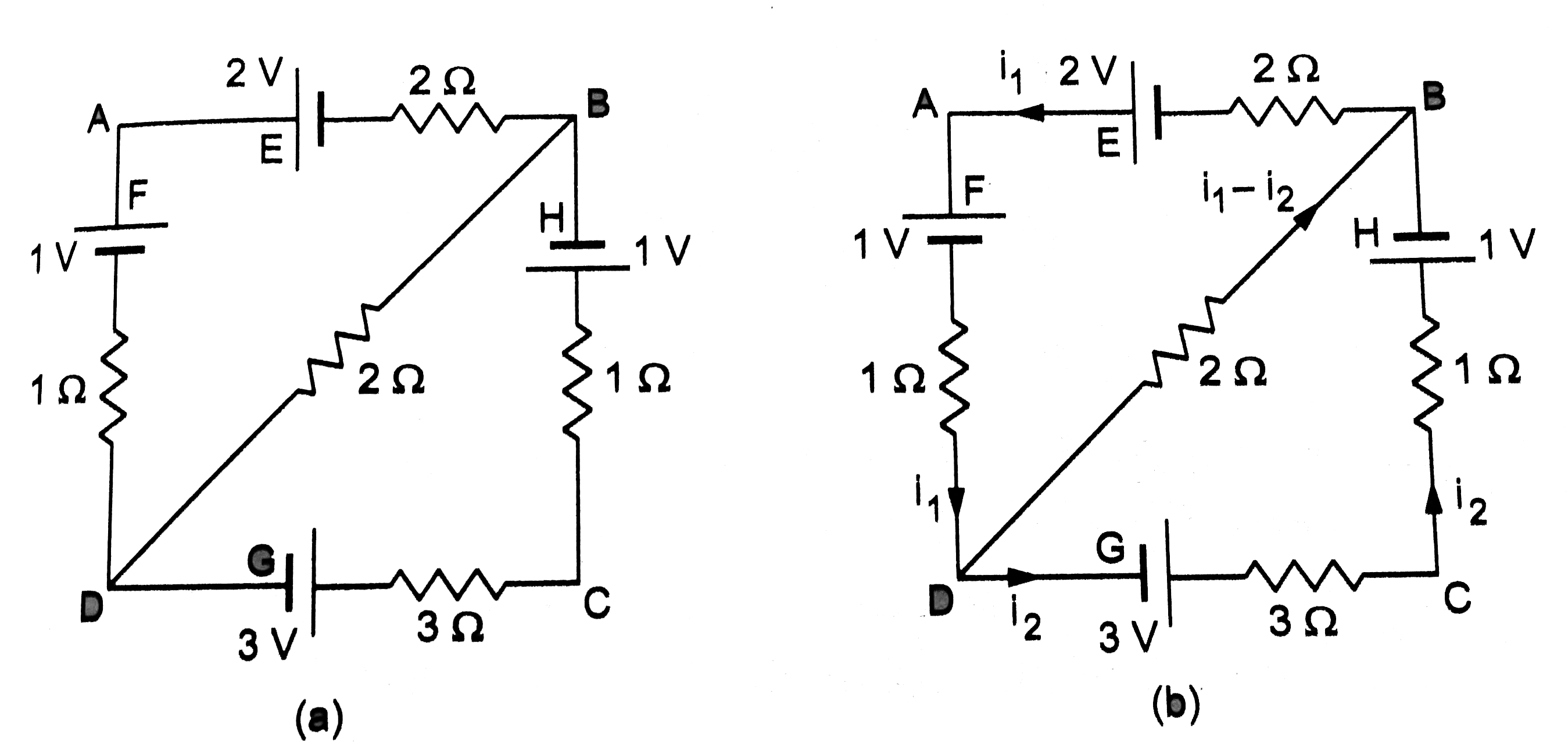
View SolutionFind the equivalent resistance between the point a and b of the circuit shown in figure
View SolutionFind the currents going through the three resistors `R_(v),R_(2)andR_(3) in the circuit of figure.
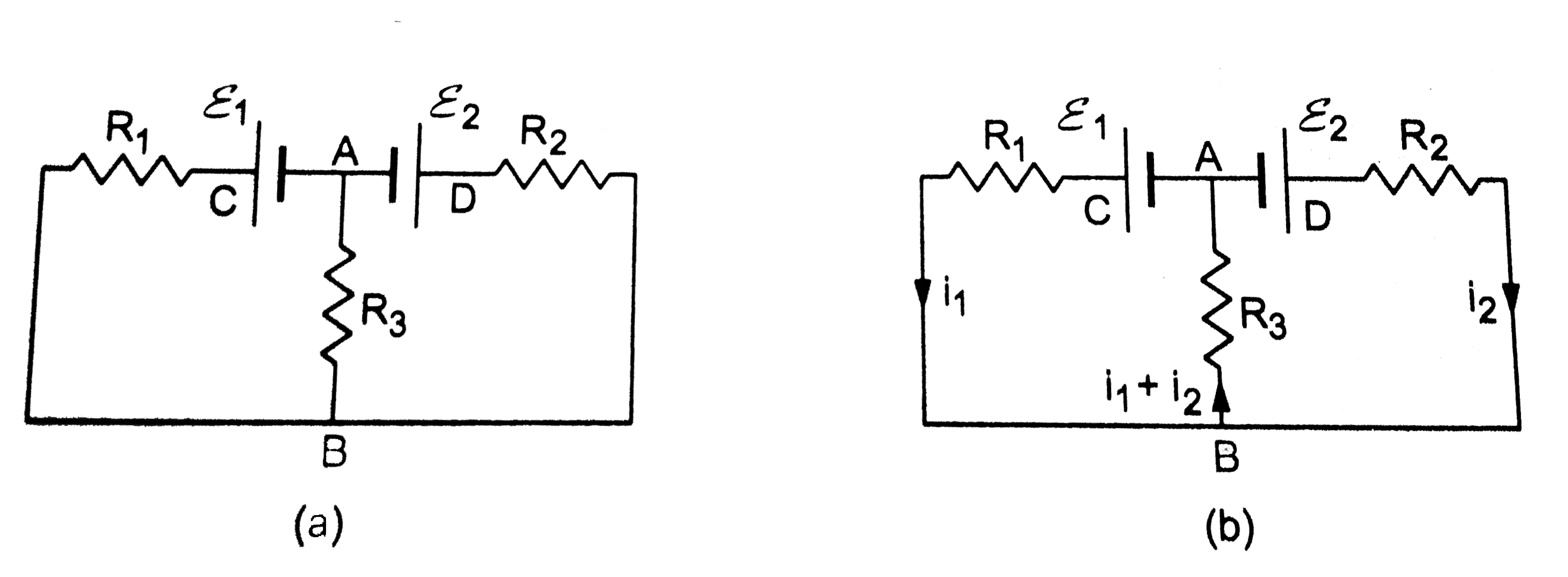
View SolutionTwelve wire, each having resistance r, are joined to form a cube as shown in figure.Find the equivalent resistance between the end of a face diagonal such as `a and c`.
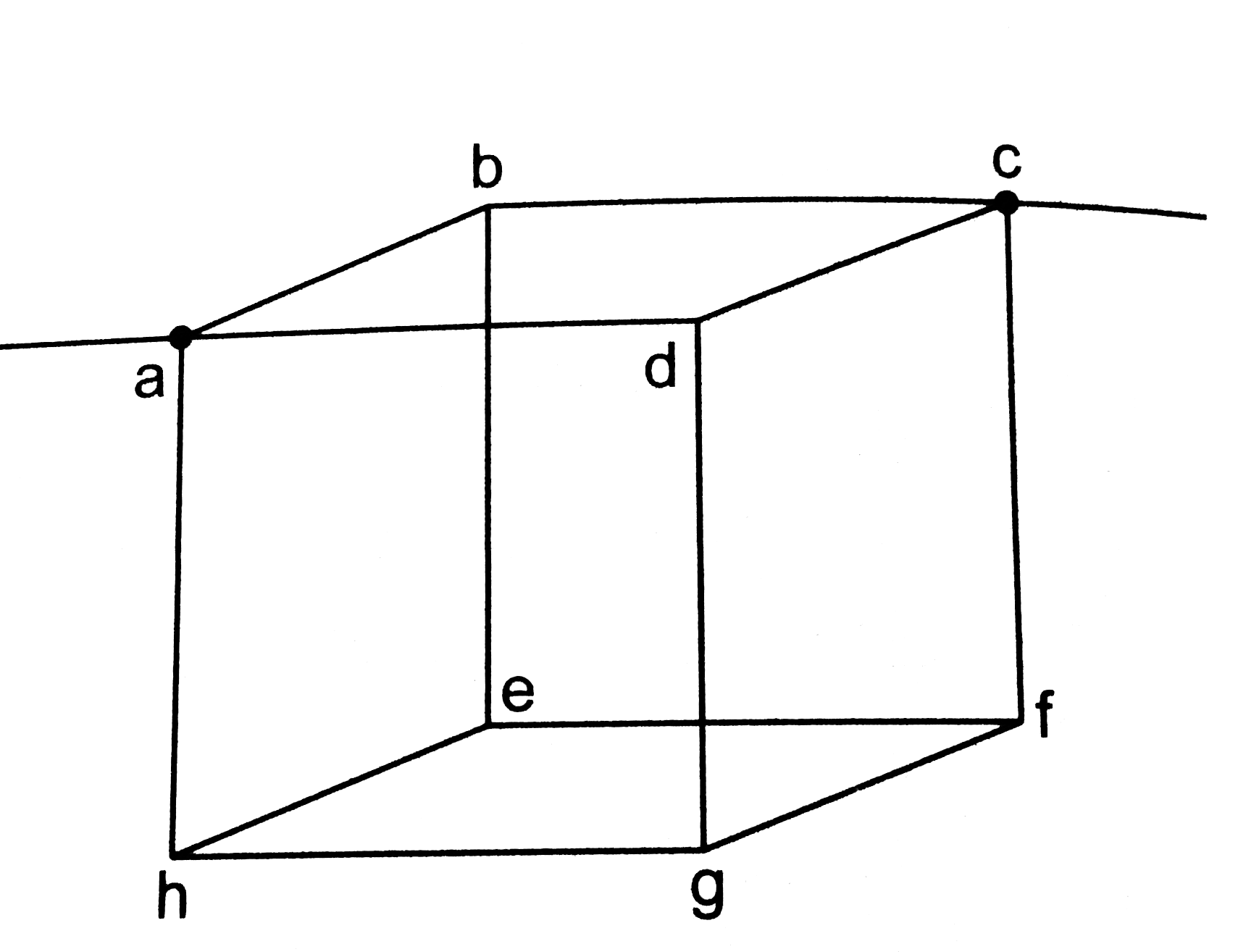
View SolutionFind the equivalent resistance of the circuit of the previous problen between the ends of an edge such as a and b in figure.
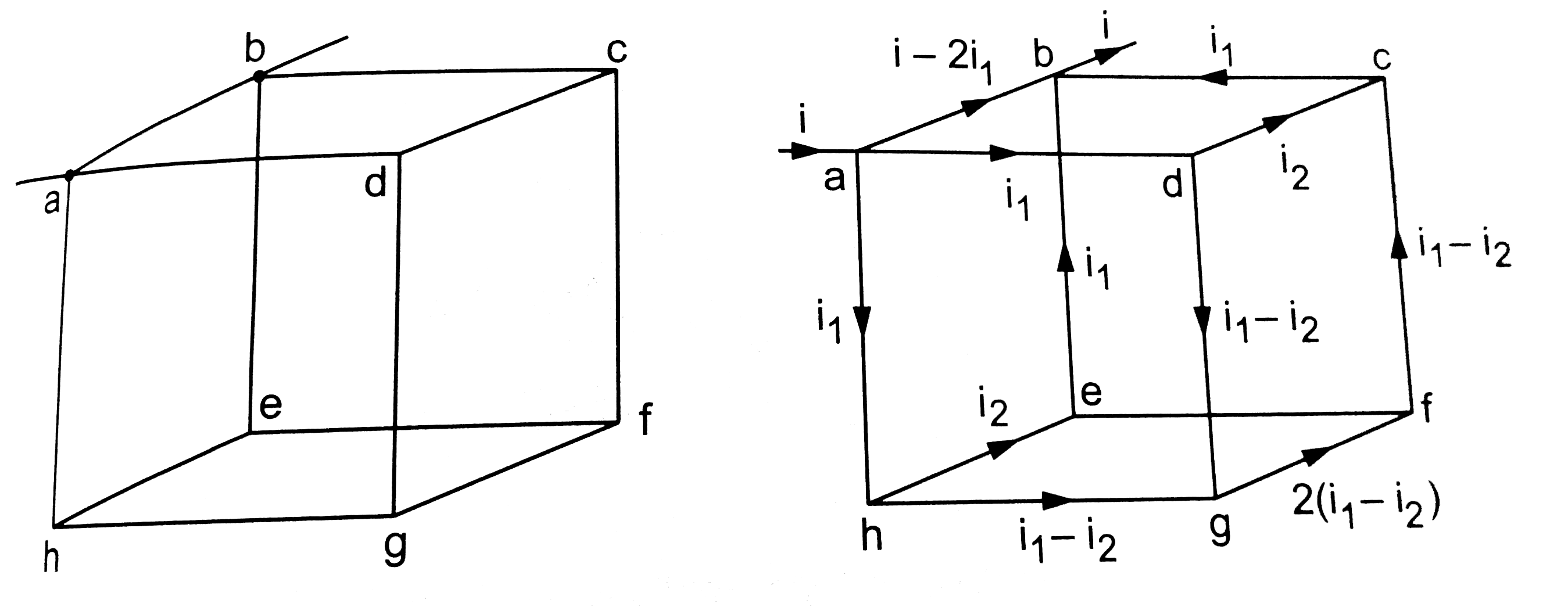
View SolutionFind the equivalent resistance between thepoints a and b of the infinite ladder shown in figure.

View SolutionFind the equivalent resistance of the network shown in figure between the points `a and b`.
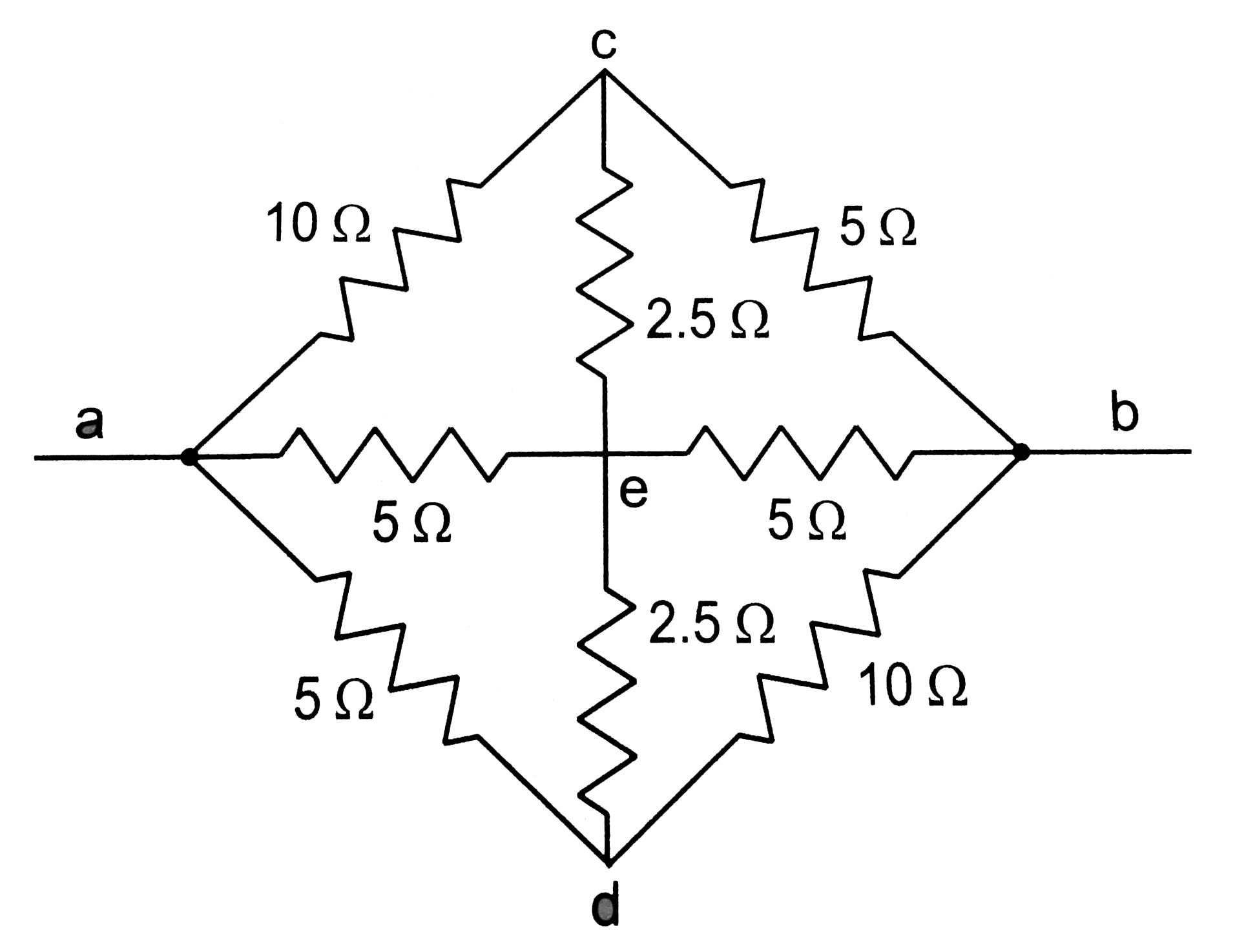
View Solution(a)Find the current I supplied by the battery in the network shown in figure in steady state. (b)find the charge on the capacitor.
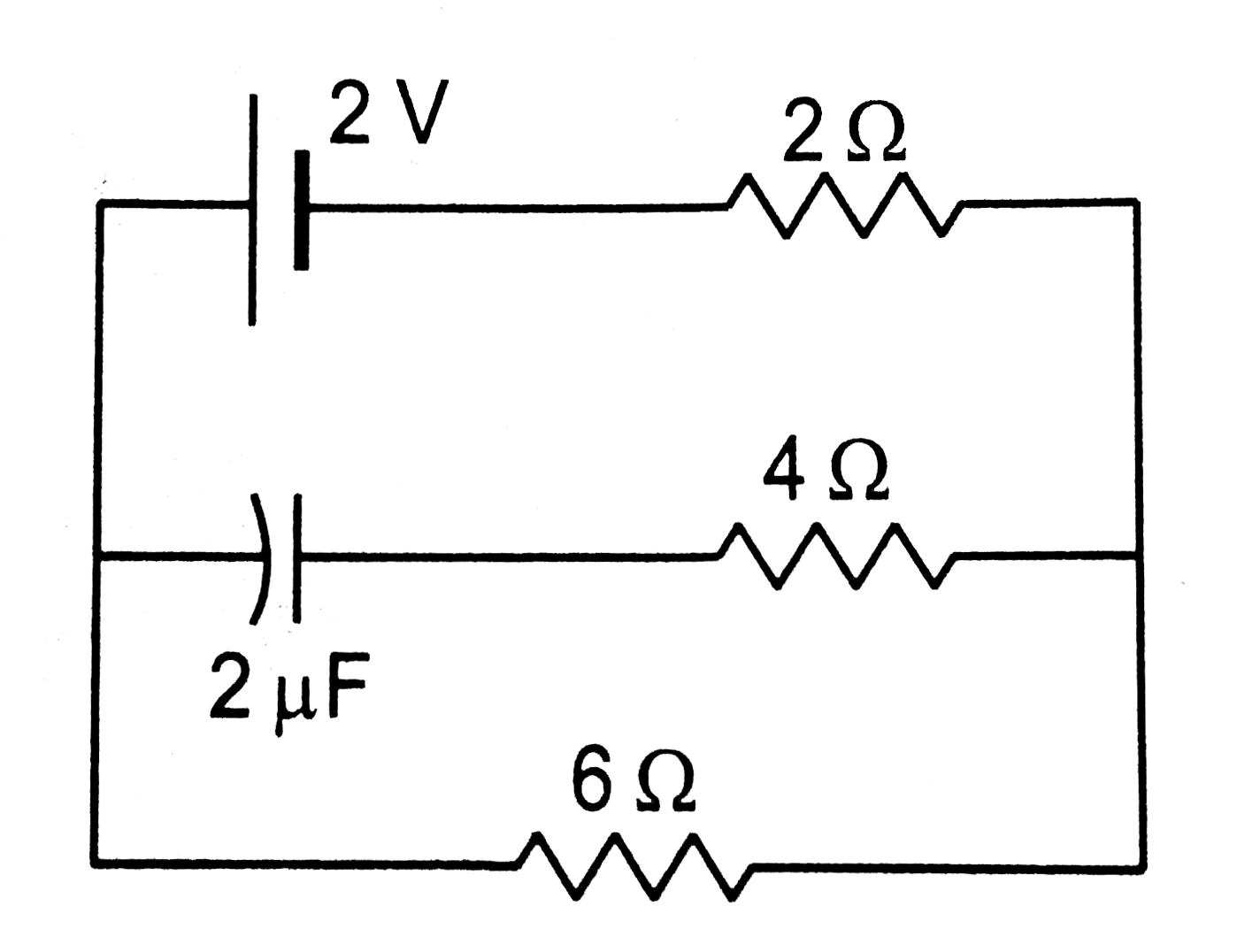
View SolutionA part of a circuit in steady state along with the currents flowing in the branches,the values of resistances,etc, is shown in figure.Calculate the energy stored in the capacitor.
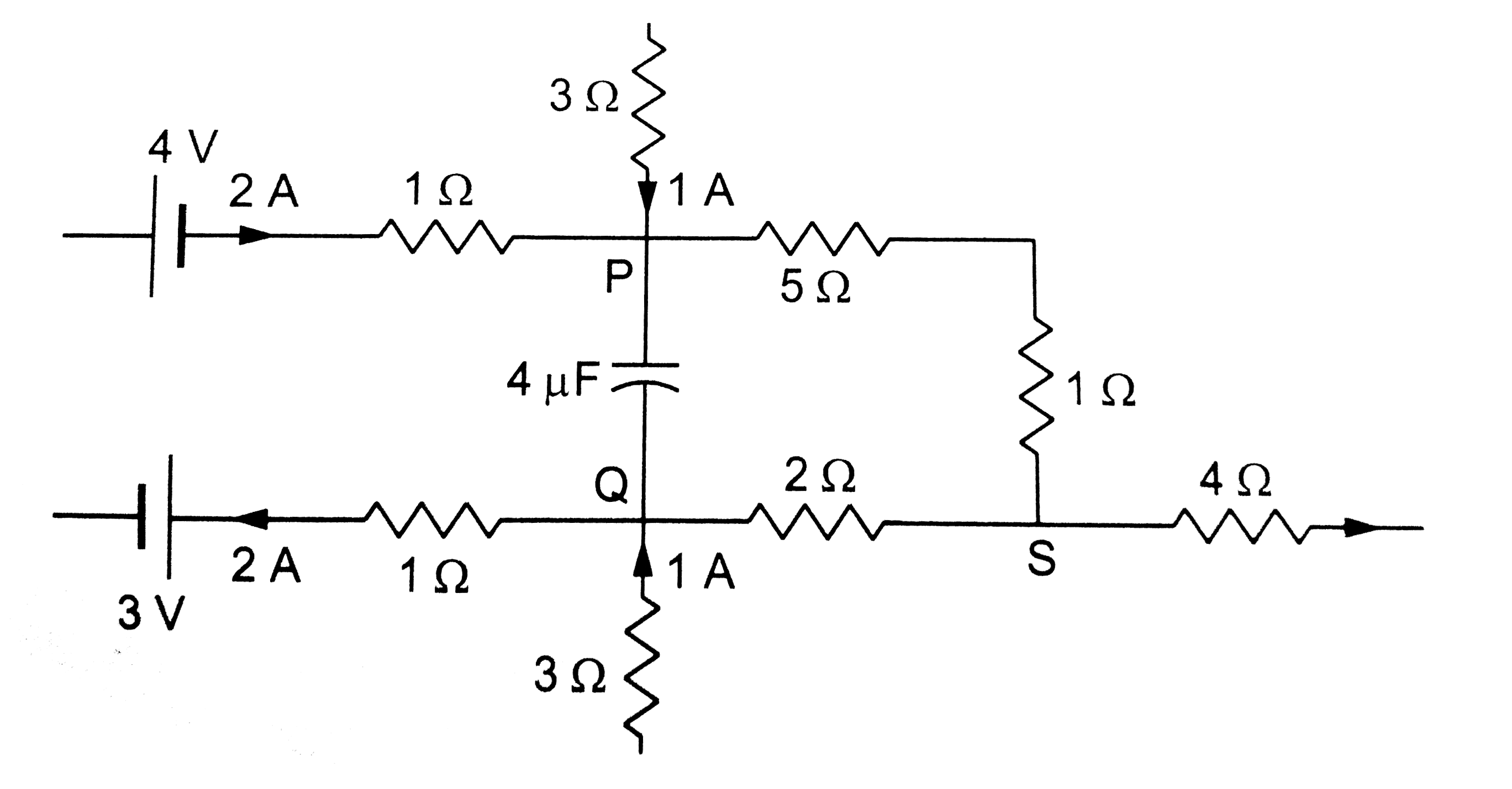
View Solution(a)find the potential drops across the two resistors shown in figure. (b) A voltmeter of resistance `(600 Omega)`is used to measure the potential drop across the `(300 Omega)` resistor.What will be the measured potential drop?
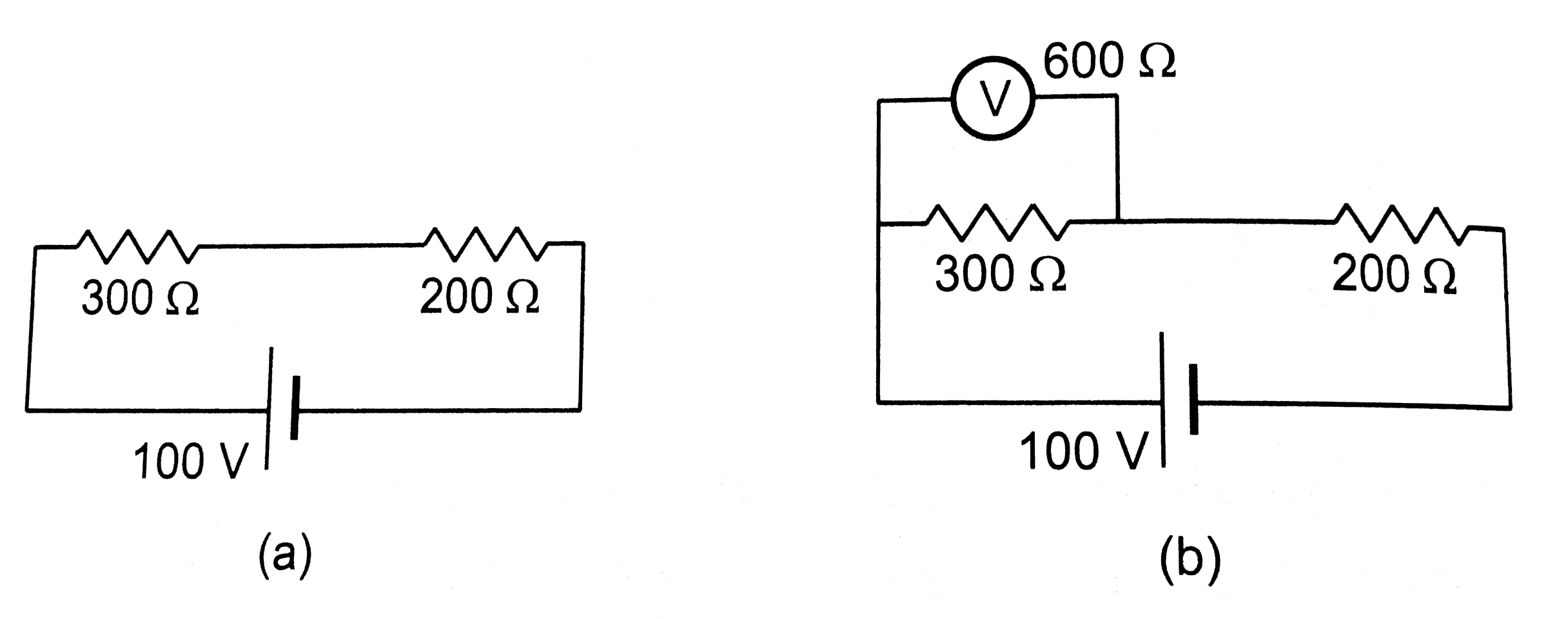
View SolutionA galvanometer has a coil of resistance `100(Omega)` showing a full-scale deflection at 50(mu)A. What resistance should be added to use it as (a) a voltmeter of range 50 V (b) an ammeter of range 10 mA?
View SolutionThe electric field between the plates of a parallel-plate capacitor of capacitance`2.0(mu)F drops to one third of its initial value in `(4.4 mu)s` when the plates are connected by a thin wire. Find the resistance of the wire.
View SolutionA capacitor is connected to a 12 V battery through a resistance of `(10Omega)`.It is found that the potential difference across the capacitor rises to 4.0 V in 1(mu)s. find the capacitance of the capacitor.
View SolutionA capacitor charged to `50 V` is discharged by connecting the two plates at `t=0`.If the potential difference across the plates drops to 1.0 V at t=10 ms,what will be the potential difference at t=20 ms?
View SolutionA `5.0(mu)F` capacitor having a charge of `(20 (mu)C)`is discharged through a wire aof resistance `(5.0 Omega)`. Find the heat dissipated in the wire between 25 to `50 (mu)s after the connections are made.
View Solution
Worked Out Examples questions and complete solutions for chapter ELECTRIC CURRENT IN CONDUCTORS of HC VERMA PHYSICS (HINGLISH) of Class 12